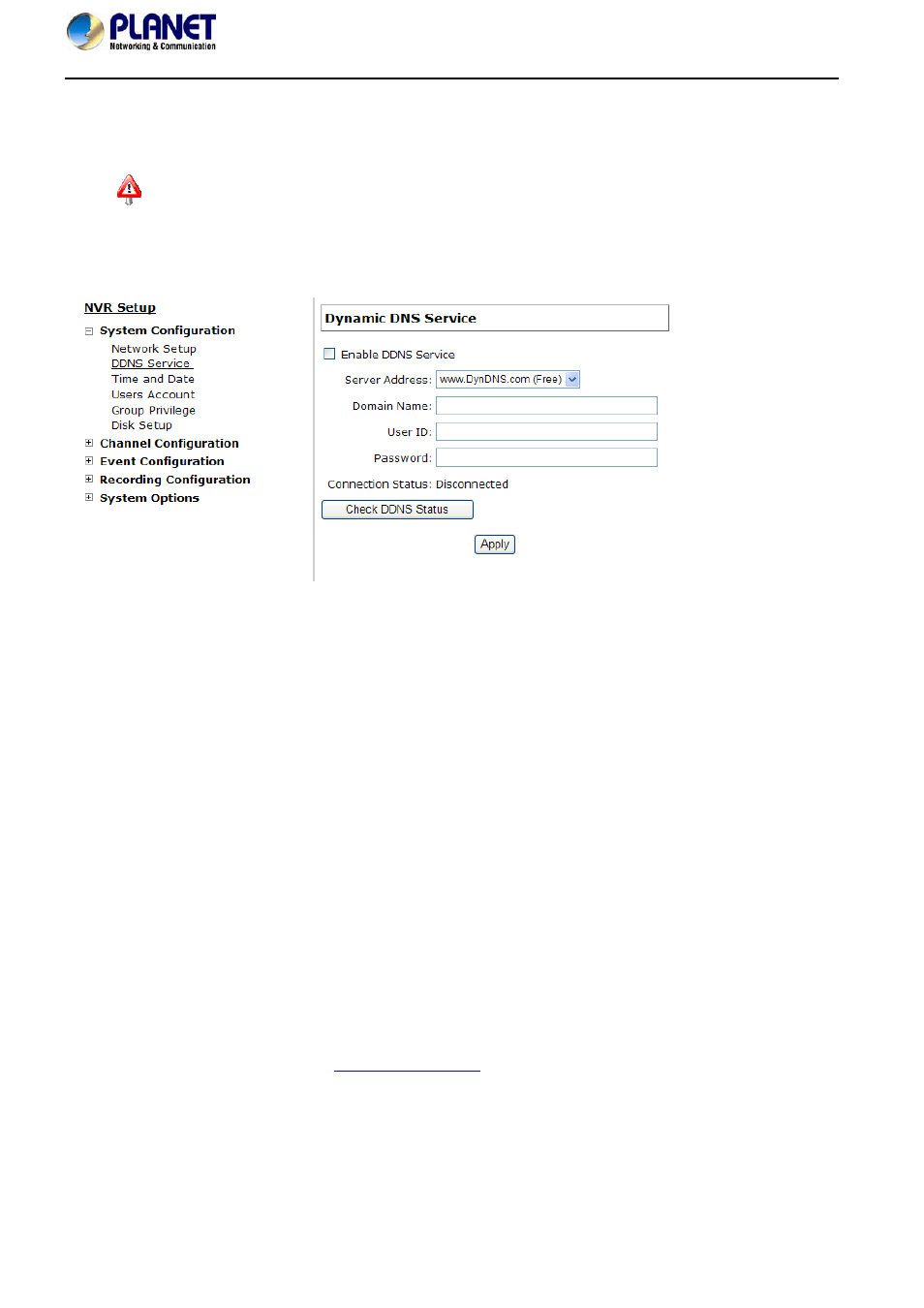PLANET NVR-420 User Manual
Page 46

network. Its DHCP server function is also turned on at the same time to assign IP
addresses to cameras that are later connected to the network. You can manually
turn off the DHCP server function if you wish to use a separate DHCP server.
Changing the recorder’s IP address would require the recorder to restart.
Restart the device under “system Options” >> “Maintenance” for the settings to
take effect.
DDNS Service
DDNS, which stands for “Dynamic DNS”, is a method, protocol, or network
service that provides the capability for a networked device, such as a router
or computer system (in this case, the NVR) using the Internet Protocol
Suite to notify a domain name server to change, in real time, the active
DNS configuration of its configured host names, addresses or other
information stored in DNS.
A popular application of dynamic DNS is to provide a residential user’s
Internet gateway that has a variable, often changing, IP address with a well
known host name resolvable through standard DNS queries.
This is useful if the NVR is placed on the Internet with a dynamic public IP,
in which once the DDNS is properly set up, users can access the NVR
remotely with the DDNS domain name without worrying if the IP has
changed or not.
*Please make sure a valid DNS server has been configured under the “Network
Setting” page in order for this function to work properly.
*The NVR currently only works with free DDNS service provided by “DynDNS”. For
*If the NVR is placed behind a router or Internet gateway, please make sure port
forwarding for port 80 is configured on the router or the gateway in order for the DDNS
function to properly register with the service. It’s often suggested to use the DDNS
function in the router/ gateway for such case instead.
46
4-CH H.264 Network Video Recorder with HDMI
User’s Manual of NVR-420